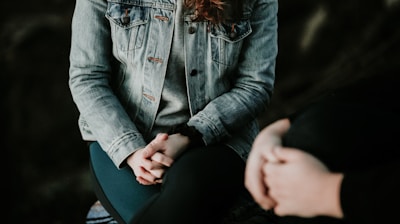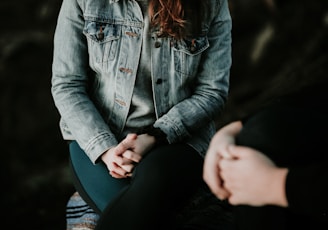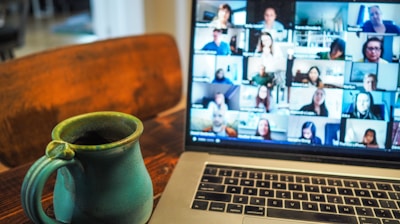Services
One to One Lived Experience Sessions
We base our lived experience sessions on the foundation of having the shared experience of working toward recovery from a mental health concern. This shared experience of recovering is what binds us together as a community.
An excellent analogy is buying a bicycle: when you’re buying a bicycle you want to be talking to someone who has ridden one before. Ideally, you want to be talking to someone who is passionate about riding and does so regularly.
Sessions allow for building and maintaining authentic and mutual connections with peers, being genuinely empathetic and non-judgemental; sharing hope, knowledge, and experience that recovery is possible; challenging ourselves and others to fully explore and engage in recovery; sharing strategies that have worked for us; and challenging stigma and discrimination by openly demonstrating recovery and the skills and abilities that people who experience mental health challenges have.
Lived Experience Practitioner Peer Supervision
Individual supervision provides a space and a process that encourages conversations and reflections about how we connect with others using our lived experience.
You will be supported to reflect on your own values and how they intersect with lived experience workforce and organisational values. A supervisor will support you to use your lived experience in different roles across health and community sectors. We will also share knowledge of working in a range of lived experience roles, offering our knowledge and perspective to assist you in finding your own solutions and strategies.
Group supervision is useful for smaller lived experience teams (2-10) and may involve sharing skills and knowledge amongst group members, discussing challenges and rewards of a particular program or lived experience work in general, and activities to support team relationships.






Lived Experience Story Sharing
We believe every story is valid, worthy of being shared and has the potential to have a positive impact Story Sharing workshops or one to one sessions aim to equip people with the skills they need to share their lived experience stories about mental health challenges.
The workshop or session covers information about story structure, sharing safely, and using impactful storytelling techniques.
We provide one to one support for participants while they write their story. This workshop is the first step to becoming a lived experience storyteller, with the opportunity to progress into story development and a future storyteller role within connected organisations and training opportunities.
These workshops can be delivered on a one to one basis or as a group which can be very useful for staff development and team building, especially within therapeutic and lived experience environments.
Body Image & Eating Disorder Training
This training program is designed to increase capacity to create affirming spaces and practice. It is suitable for consumers and clients wanting to learn more about diet culture, body image and eating disorders as well as practitioners working with clients who are impacted by these issues.
Evidence based and prevention focused; addressing the risk & protective factors underpinning the development of negative body image
In consultation with lived experience and the recovered community, we hope to fill knowledge gaps and increase confidence and skills around:
Challenging cultural ideals and unhelpful language around appearance
Individual and environmental influences including social media and appearance based language
Deciphering unhelpful and potentially harmful health-related messaging
Understanding self-esteem, body esteem and celebrating uniqueness and diversity
Managing pressures and combating the inner critic
Encouraging help-seeking for self and others
Debunking myths around eating disorders
The spectrum of behaviours from healthy to disordered and clinical diagnosis
Knowledge of risk and protective factors
Eating and Body Attitude Spectrum
Extent and impact of low body esteem, including in males
Obesity and weight stigma
Lived Experience Framework Training
Based on an IPS framework, the lived experience training enables participants to be peer support informed, or be better equipped to support lived experience workers within their organisation.
During the training, participants learn:
Connection, worldview, mutuality and moving towards goals
Understanding the impact of trauma
Examinging power and privilege
Navigating challenging situations
Listening with intention
Negotiating boundaries
Explore how we have “come to know what we know”
Strive for mutuality in relationships
Stay curious, question assumptions, and own judgements and opinions
Name and negotiate power in relationships
Approach crisis as an opportunity to grow
Share risk and responsibility
Focus on the quality of relationships instead of fixing one another
Pay attention to the impact of clinical and labeling language
Keep the energy in relationships moving towards what we want
Understand lived experience in the context of social change and social justice
Differences between lived experience workers and clinical workers
The role of self-identified lived experience clinicians and practitioners






Positive Sexuality & Relationship Training
This training is founded on the Sex Positive model and based on The Pleasure Project's framework. We draw from our own experiences of pleasure as well as from the joys and turn-ons of joining a collective movement that is radically pro-pleasure in its myriad forms.
This training is centred around The Pleasure Principles and how they are designed to act as a guide and inspiration to support people and organisations to embark on the journey towards a sex-positive, pleasure-based approach to sexual health. The Pleasure Principles aim to help inspire and guide you as a pleasure activist, propagandist or practitioner:
To build a pleasure-inclusive world, love yourself. Show kindness to yourself and others.
There is a growing body of evidence about the impact of pleasure-positive approaches on sexual health. Use this knowledge to spread sex positivity.
Pleasure-positive messaging and how to communicate it positively & effectively. Adopt evidence-based pleasure-inclusive language and imagery.
Be adaptive in your approach to each unique context and culture.
Recognise individual differences and identities, and ensure everyone is included in pleasure-based sexual health.
Sexual rights and human rights are core to a person's sexuality.
Core to all the Pleasure Principles is being sex-positive. Remember, when you feel safe and are safe, sex can be very good for you.
